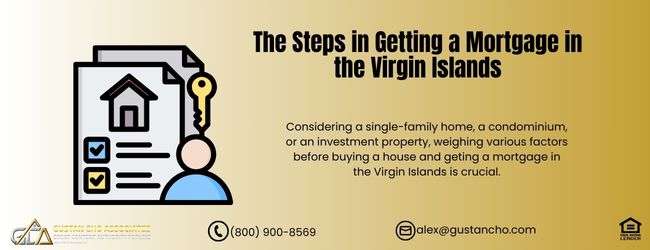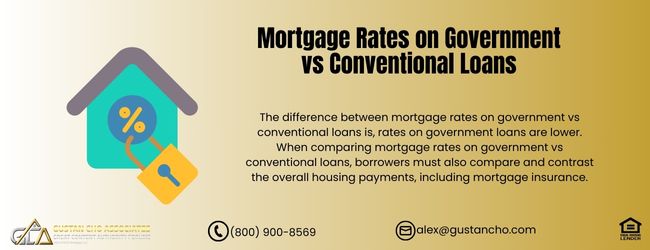Fannie Mae and Freddie Mac Guidelines on Conventional Loans

This guide will cover Fannie Mae and Freddie Mac Guidelines on Conventional Loans. Fannie Mae and Freddie Mac Guidelines: Conventional loans are not government-backed mortgages. They are not insured or guaranteed by any government agency such as HUD, VA, or USDA. However, lenders ensure that all conventional loans they originate and fund meet the Fannie Mae and Freddie Mac guidelines. Fannie Mae and Freddie Mac are the two mortgage giants that are the biggest buyers of mortgage loans on the secondary mortgage market. Fannie Mae and Freddie Mac only buy loans that conform to their agency mortgage guidelines. This is why conventional loans are often referred to as conforming loans. The following paragraphs will cover Fannie Mae and Freddie Mac Guidelines on Conventional Loans.
The Role of Fannie Mae and Freddie Mac
Fannie Mae and Freddie Mac will not purchase any loans that do not conform to their agency mortgage guidelines. The role of Fannie Mae and Freddie Mac is to provide liquidity in the mortgage markets. Fannie and Freddie provide liquidity in the mortgage markets by purchasing conforming loans lenders originate and fund. Lenders use their warehouse line of credit to fund loans. After the loan is funded, lenders need to sell the loans on the secondary mortgage market. After Fannie Mae and/or Freddie Mac purchase the loan on the secondary market of the mortgage banker, the mortgage banker can then pay its warehouse line of credit and originate and fund more loans. This is how Fannie Mae and Freddie Mac provide liquidity in the mortgage markets. This is mainly because Fannie Mae and Freddie Mac lenders have liquidity and can originate and fund many loans. Conventional loans are referred to as Conforming Loans.
Fannie Mae and Freddie Mac Guidelines on Conventional Loans
Fannie Mae and Freddie Mac set the agency mortgage guidelines on Conventional loans. Conventional Loans are called Conforming Loans. This is because they need to conform to Fannie Mae and Freddie Mac Guidelines. Borrowers need to meet Fannie Mae and Freddie Mac Guidelines to qualify for Conventional Loans. Fannie Mae and Freddie Mac are the two Government Sponsored Enterprises (GSE) that are in charge of implementing mortgage guidelines for Conventional Loans. Conventional Loans are called Conforming Loans. This is because they need to conform to Fannie Mae and/or Freddie Mac mortgage guidelines. In this article, we will discuss and cover Fannie Mae And Freddie Mac Guidelines On Conventional Loans.
Fannie Mae and Freddie Mac Guidelines on Conventional Loans
Apply Online And Get recommendations From Loan Experts
How Does Conventional Loans Work?
Fannie Mae and Freddie Mac are the two mortgage giants in the United States. Even though both Fannie Mae and Freddie Mac serve the same purpose of providing liquidity in the U.S. mortgage markets, they are two different institutions: But are both in charge of setting up mortgage guidelines on Conventional Loans. The minimum down payment required for conventional loans is a 3% down payment for first-time home buyers and a 5% down payment for Conventional borrowers. First-time home buyers are people who did not own a property in the past three years.
Conventional loans are credit-sensitive, unlike FHA-insured mortgage loans. By credit-sensitive, the lower credit scores, the higher mortgage rates. Fannie Mae And Freddie Mac do not insure Conventional Loans like HUD insures FHA Loans and VA insuring VA Loans.
Fannie Mae and Freddie Mac will buy Conventional Loans that conform to their guidelines by private lenders. In order for Fannie Mae and Freddie Mac to purchase Conventional Loans, lenders need to make sure they originate meet and conform to all Fannie Mae and Freddie Mac Guidelines. Conforming Loans need to conform to Fannie Mae and Freddie Mac Guidelines with regards to credit, income, and other standards. Fannie Mae and Freddie Mac do not deal with consumers but deals with lenders.
HUD Compared To Fannie Mae and Freddie Mac Guidelines
To qualify for a 3.5% down payment FHA home purchase loan, the minimum credit score required is 580 credit score: With FHA loans, the minimum credit score required to qualify is 500 credit scores. A home buyer can qualify for a 10% down payment FHA loan if their credit scores fall between 500 and 579. If credit scores are over 580 borrowers can qualify for a 3.5% down payment FHA-insured mortgage loan. But the debt to income ratio is capped at 43% for borrowers with under 620 credit scores to get an approve/eligible per automated underwriting system (AUS). If credit scores are higher than 620, HUD will allow up to 56.9% DTI on the back end and no greater than 46.9% front end DTI to render an approve/eligible per Automated Underwriting System.
VA Guidelines
Department of Veteran Affairs (VA) offers 100% financing on VA loans to veteran borrowers with honorable discharge and Certificate of Eligibility (COE). There are no minimum credit score requirements on VA Loans. There is no debt to income ratio caps on VA loans. However, to get an approve/eligible per AUS Findings, Veteran Borrowers should have at least 580 credit scores. GCA Forums Mortgage Group is a mortgage company licensed in multiple states with zero overlays on VA loans. GCA Forums Mortgage Group has no lender overlays on government and conventional loans. We also offer dozens of non–QM and alternative mortgage loan programs.
Fannie Mae and Freddie Mac Guidelines on Credit Scores
The minimum credit score required for a conventional loan is 620. Most mortgage lenders have overlays for borrowers of conventional loans. Lender overlays are lending requirements that are above and beyond the minimum agency guidelines of Fannie Mae and/or Freddie Mac. Lenders can set higher lending standards than the minimum Fannie/Freddie Agency Guidelines. Most lenders will require a higher credit score than the minimum 620 required by Fannie Mae and/or Freddie Mac. Many lenders may require a minimum credit score of 640 or higher. To get the best mortgage rates on conventional mortgage loans, a borrower needs a 740 score on conventional loans. The lower the credit score, the higher the mortgage rates.
Fannie Mae and Freddie Mac Guidelines on Conventional Loans After Bankruptcy and Foreclosure
Waiting periods to qualify for conventional loans after a bankruptcy, foreclosure, deed in lieu of foreclosure, and short sale are longer and lending guidelines are tougher than FHA-insured mortgage loans. With FHA-insured mortgage loans, the waiting period after bankruptcy to qualify for an FHA loan is 2 years from the discharge date of Chapter 7 bankruptcy. For conventional loans, the waiting period is 4 years from the discharge date of the Chapter 7 bankruptcy discharge date. The waiting period after the recorded date of foreclosure to qualify for an FHA loan is 3 years. The waiting period to qualify for conventional loans after the recorded date of foreclosure is 7 years. The waiting period to qualify for FHA insured mortgage loan after a deed in lieu of foreclosure or short sale is three years. A borrower can qualify for conventional loan financing after four years after a deed in lieu of foreclosure or short sale.
Fannie Mae And Freddie Mac Guidelines on Debt To Income Ratio
FHA-insured mortgage loans maximum debt-to-income ratio requirements is capped at 46.9% front end debt to income ratio and 56.9% back end debt to income ratio. For conventional loans, Fannie Mae allows up to a 50% DTI. Freddie Mac will allow up to 50% Debt To Income Ratio. Those with great credit but higher debt to income ratios may need to turn to FHA-insured mortgage financing due to the lower debt to income ratio caps of conventional loans. Dustin Dumestre, an associate contributing editor of GCA Forums says the following about HUD and Fannie Mae and Freddie Mac Guidelines on student loans.
Fannie Mae and Freddie Mac Guidelines allow Income-Based Repayment (IBR) on student loans on conventional loans. HUD also allows income based repayment plan.
Both Fannie Mae, Freddie Mac, USDA, and HUD requires require 0,050% of the outstanding balance on student loans to be used as monthly hypothetical debt unless the debt is fully amortized on an extended payment plan. Borrowers can request hypothetical fully amortized monthly payments over an extended payment plan (normally 25-to-30 years). This number normally turns out to be between 0.50 to 0.60% of the outstanding loan balance. This balance can be used in lieu of the 0.50% if the borrower can get this number and verbiage from the student loan provider.
Qualify For Conventional Loans After Bankruptcy and Foreclosure
Apply Online And Get recommendations From Loan Experts
HUD Versus Fannie Mae and Freddie Mac Guidelines
FHA-insured mortgage loans allow for non-occupied co-borrowers and 100% gift funds for their down payments. Fannie Mae does not allow for non-occupied co-borrowers. Freddie Mac does allow co-borrowers to be added to the loan. Gift funds are limited on how much gift funds can be gifted to the borrower. FHA loans allow for open collections and charge off debts not being paid off. Conventional loans frown upon prior bad credit and open collections and charge-offs may need to be paid off prior to closing. Depends on what Automated Underwriting System conditions for. FHA loans do not credit-sensitive as conventional loans. Any conventional mortgage loan borrower with lower than 740 credit scores will be paying higher mortgage rates. The lower your credit scores, the higher your mortgage rates. Homebuyers who need to qualify for government and/or conventional loans with a direct lender with no mortgage overlays, please contact us at GCA Forums Mortgage Group at 800-900-8569 or text us for a faster response. Or email us at gcho@gustancho.com.
Frequently Asked Questions on Fannie Mae And Freddie Mac Guidelines on Conventional Loans
Most Commonly Asked Questions (FAQs) about the Requirements Set by Fannie Mae and Freddie Mac on Conventional Loans.
The Role of Fannie Mae and Freddie Mac
They are GSEs that buy out mortgages from their lenders in order to ensure there is enough money in the housing market. They buy out mortgages through Fannie mae and Freddie Mac which are two government-backed enterprises. They however apply certain limits such as loan limits and underwriting to these mortgage sales.
What is Classified as a Conventional Loan?
A conventional loan can be understood as a mortgage type that does not fall under the category of FHA, VA, or USDA backing. It instead abides by the requirements that Fannie Mae or Freddie Mac has put forth. In simple words, a conventional loan is not backed by the government.
What Are The Most Prominent Features That a Conventional Loan Has to Offer?
- Looser Requirements: Some programs encourage home buyers by allowing them to only put down 3%.
- Pulling in PMI is not required: If one decides to put a downpayment of 20% or more than they do not need to pull in the PMI.
- Flexibility: The loan can be used for the purchase of a primary home, a second home or an investment property.
- Long Term Saving: Loans which are guarantee backed tend to be more expensive over time, especially if one has to purchase the PMI.
Are There Established Loan Limits for Fannie Mae and Freddie Mac in 2025?
The conforming loan limits for 2024 are:
- Individual Houses: Mostly $766,550 in other locations; a maximum of $1,149,850 or more in regions with elevated costs, often called high-cost area.
- Multi-Family Properties (2-4 Units): Greater limits are applicable based on unit count and geographical area.
What Is The Minimum Credit Score To Be Eligible For Conventional Loans?
- Most loans: The minimum Personal Credit Score is 620.
- Best Rates on Loans: This also means that on the best rates and terms borrowers with a credit score greater than 740 get offered the mortgage.
How May I be Qualified For a Loan?
- Buyers into housing purchases as a first priority: These people may be able to secure a loan for as little as 3 percent down payment thanks to options like HomeReady® or HomePossible®.
- Most Borrowers: For all conventional loans, this is normally the case and around 5 %down must be made.
- Properties of Interest: A down payment of 15%-25% is common.
Explain Private Mortgage Insurance Requirement?
For conventional mortgages where the borrower has a downpayment of 20% or more, this policy is applicable.
- As long as you reach 20% equity in the home, PMIs can be taken out by either paying on your loan or obtaining equity in the property.
- PMI, in general, will cost you around 0.5-1 percent of the total amount of the loan annually.
Fannie Mae and Freddie Mac Guidelines on Debt-to-Income Ratio
- From there, we move to the eighth requirement: the debt-to-income ratio.
- It is quite common for lenders to be unable to provide funding that exceeds a core threshold.
- However, with strong reassuring variables like a high credit score or a significant down payment, it is still possible to exceed that limit.
- But typically the maximum DTI remains between 45% to 50%.
- There seems to be a promotion by Fannie Mae and Freddie Mac that allows for financing of single family homes, two to four family multi-homes, condominiums, planned unit developments, and even manufactured homes that are subject to certain particular criteria.
- To that end, yes, conventional loans are eligible if investment properties are to be purchased with them.
- But almost always, unless otherwise indicated, they request a down payment between 15% to 25% based on the type of property and the specific loan program attached to it.
- Interest rates, on the other hand, are usually higher than if the property was classified as one of the primary residences.
Difference Between Fannie Mae and Freddie Mac
In contrast, the competition program offered by Fannie Mae is specifically targeted towards individuals that belong in the lower or moderate income bracket. To facilitate property acquisition, they allow a minimum down payment as low as 5% and income limitations that depend on the location of the property.
The program operated by Freddie Mac, on the other hand, hardly has much difference from the one operated by Fannie Mae as the sole distinct feature is that Freddie Mac allows down payments that are only as low as 5%.
What Appraisal Standards Need to be Met to Qualify for a Conventional Loan?
Fannie Mae and Freddie Mac have set appraisal requirements to establish the market value of the property. In some instances, appraisal waivers are available to borrowers with excellent credit, substantial equity in the property, or highly favorable refinancing LTV ratios.
Am I Eligible For a Conventional Loan After I’ve Filed For Bankruptcy or Gone Through a Foreclosure?
Yes, but there are waiting periods:
- Chapter 7 Bankruptcy: This needs to be 4 years after the bankruptcy discharge.
- Chapter 13 Bankruptcy: This can be satisfied 2 years after the discharge or 4 years after dismissal.
- Deed-in-Lieu and Short Sale:Four year waiting period after the recorded date of the deed-in-lieu of foreclosure or a short-sale.
- Foreclosure: This needs to be set for 7 years.
What Will Closing Costs Look Like For a Conventional Loan?
For most types of loans closing costs will fall between 2% and 5% and will typically include:
- Loan origination charge.
- Real estate appraisal costs and assessment fees.
- Insurance against title fraud and document filing fees.
- Taxes, plus monthly house insurance paid in advance.
What Are the Benefits and Drawbacks of Conventional Loans?
Standards on Crediting: For an individual to qualify for good loan terms, credit must be rated good or excellent.
- PMI: This can be a burden for borrowers that do not manage to make a larger downpayment.
- Income levels: Overall higher DTI ratios usually call for offsetting features.
Fannie Mae and Freddie Mac guidelines govern Standard loans. These particular loans meet the bulk of the borrower basics which include: Good terms but not outrageous interest rates, little to no downpayments and, flexibility with the property type. Nevertheless, to enjoy the full benefits, understanding their guidelines and requirements becomes imperative.
Start Your Process Towards Buying A Home
Apply Online And Get recommendations From Loan Experts






Responses